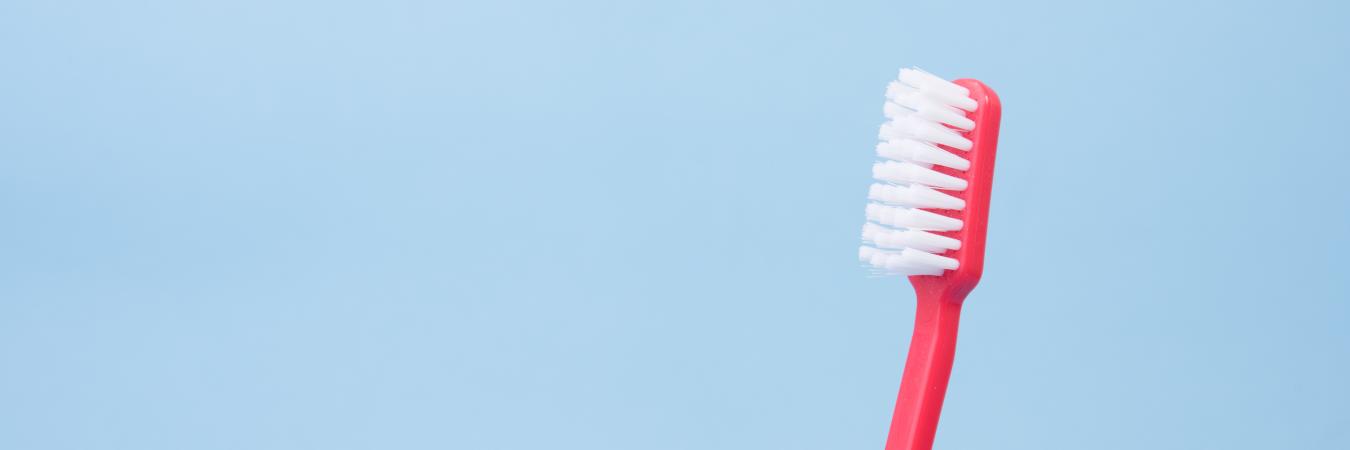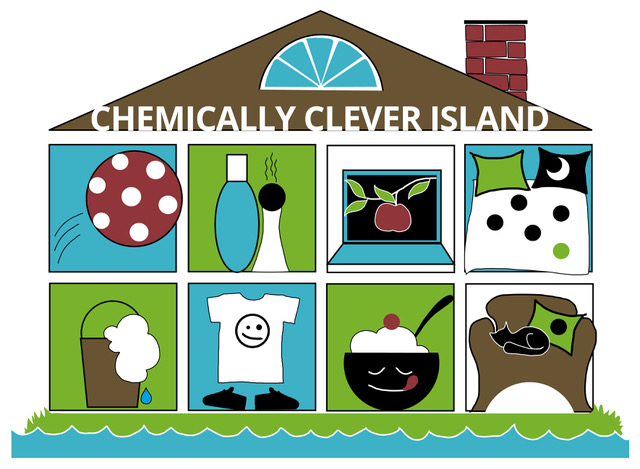Bathroom findings

Schampoo
Are you a conditioner addict? Most shampoos consist mostly of surfactants (like sodium lauryl sulfate, SLS) that wash away all natural fat in the scalp. They make your hair dry and scrubby, so it has to be hydrated and balanced with oil or silicone. Either by the shampoo itself, or using other hair care products.
Ordinary shampoo contains a lot of interesting stuff, like softener, brightener, perfume, thickener and a great deal of preservatives. No wonder people are experimenting with alternatives. ”No poo” has become a popular movement, and on internet you can find a lot of tips and tricks.
By the way – do you have dandruff? Did you know that zinc pyrithione, which is very toxic to aquatic organisms and therefore is no longer allowed in antifouling paint for boats, is the active substance in many dandruff shampoos? Neither dundruff producing yeasts nor algae will grow on your scalp hereafter...
Sunscreen
The skin is very good at absorbing substances from what we put on it, if only the molecules are small enough. In a study at Sahlgrenska University Hospital in Sweden the subjects were told to use a sunscreen containing a certain active ingredient twice a day for five days, imitating an ordinary holiday dose. After this cure they where peeing chemicals for ten days.
The liver has to work overtime decomposing foreign substances. Children, whose livers are not yet fully developed, are recommended to use physical sunscreens rather than chemical. A physical sunscreen forms a layer upon the skin, reflecting the sun rays. Titanium dioxide is considered the safest alternative today. With nanotechnology though, particles have became so small they penetrate the skin anyway. Suntan creams are also full of mineral oils, preservatives and perfume. Invest in a sunbonnet and hang around in the shadow when the sunshine is at its brightest in the middle of the day. Tan carefully, and give your body the time it needs to build its own natural sunblock.
Toothpaste
We use at least 3 deciliters of toothpaste per person and year. In addition to being abrasive it contains nicely foaming surfactants like sodium lauryl sulfate, SLS, which irritates the mucous membranes, can cause blisters in the mouth and makes it more difficult for small wounds to heal. Fluor, too, is controversial. It is used to strengthen the tooth enamel, but some studies indicate fluor could cause different kinds of harm. ”Fluor is not toxic until it’s swallowed, which toothpaste and fluor rinse is not intended for”, the Swedish dental association writes on its website.
But. The mucous membranes of the mouth are good at absorbing medicines and give you a kick from a portion of snuff. So, why shouldn’t they also absorb other chemicals? Don’t stop brushing your teeth. But don’t overdose the toothpaste. Rinse and spit thoroughly! There are also alternative labels of toothpaste with less chemicals and more natural ingredients – maybe to alternate with.
Deodorant
We sweat about half liter a day if we take it easy. If the going gets tough we might sweat several liters. The sweat itself has no smell. The smell emerges when bacteria starts to decompose different substances in the sweat. A conventional deodorant has many components with different tasks: Something preventing the smell, something killing bacteria, perfume for smelling good and a solvent keeping it all together. If your deo is an antiperspirant it also contains a substance intended to stop the sweat from even peaking out from the sweat glands, often some kind of aluminium compound.
Aluminium has been associated with Alzheimers disease as well as breast cancer, but studies are pointing in different directions. Even if aluminium itself would not be a problem, clogging the sweat glands can lead to problems like inflammation and itching. Aluminium sulfate and alum are considered fairly mild, while aluminium chloride and zirconium are ”worse”.
The skin in the armpits is thin and sensitive. Natural deodorants made of for example herbs, aloe vera, salt stone or coconut oil are healthy alternatives at least for calmer days. If the sweat glands have been clogged for a long time it might take a while for the body to clear out and readjust.
